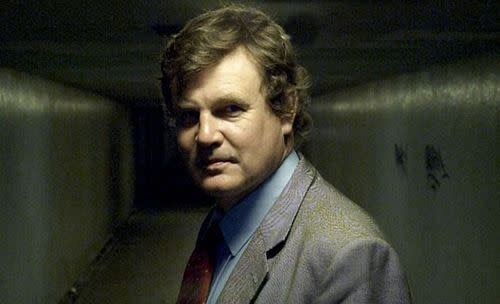Peter Oborne has bravely highlighted businesses’ stranglehold on our media by quitting the Telegraph over its 'fraudulent' HSBC scandal coverage
Years ago – soon after I began my first job on a national newspaper – editors killed an investigation I had worked on that revealed a potential public health risk.
The news editor, a cunning fellow who seemed such a natural fit in the world of tabloid journalism that I imagined he had been born swaddled in print, told me matter-of-factly: “Sorry, but one of our biggest advertisers wouldn’t like it and we’re not going to risk losing them.”
I was appalled that a business could – albeit indirectly in the form of newspaper self-censorship - curtail freedom of speech, yet I voiced no protest since I wanted to keep my job.

Even now, I am reluctant to burn bridges with those who might help me earn a living in the future, so I am protecting their identities and have chosen to write behind the shield of anonymity.
So you can imagine then how impressed I am by the brave stance taken by respected political columnist Peter Oborne (pictured).
He quit the Daily Telegraph over its shamefully thin coverage of the HSBC scandal after claiming that the newspaper did not want to risk losing advertising revenue from the bank, which was last week revealed to have helped wealthy customers dodge tax.
In an open letter to the Open Democracy website he wrote: “The coverage of HSBC in Britain’s Telegraph is a fraud on its readers.
“If major newspapers allow corporations to influence their content for fear of losing advertising revenue, democracy itself is in peril.”
He claimed that one former executive at The Telegraph, which Oborne describes as “the most important conservative-leaning newspaper in Britain”, had told him HSBC was “the advertiser you literally cannot afford to offend”.
To underline the bank’s intolerance of media scrutiny, it has put its account with The Guardian “on pause” since the left-leaning newspaper began publishing details of its joint investigation with the BBC and French paper Le Monde.
By quitting and writing his astonishing condemnation, Oborne, who is one of the few journalists who will gladly criticise all parties despite being a Tory, has shone light on a murky problem that plagues most newspapers.
The fact is, money – either from media tycoons’ own pockets or businesses willing to pay millions for ads – can wield a frightening amount of power on the press.
This is especially true in an age of rapidly shrinking circulations.
But credibility is ultimately worth more to a media outlet’s fortunes than an advertising account, which in the case of HSBC and the Telegraph is thought to be worth £1million a year.
If you lose respect – like the once-mighty Daily Express has – you are doomed (and neither endless staff cuts nor banal weather story front-page splashes will save you).
Oborne also rightly highlights the effect this has on democracy because voters rely on a free press to make informed choices.
And, only a week before his resignation, Oborne had said he was also fed up with the extent to which big business is funding the Tories.
“If you want a hedge fund manager-run Britain, vote Conservative”, he riskily said in a debate sponsored by The Spectator, a right-wing magazine that he also writes for and which is owned by the Telegraph’s tax-exile Barclay brothers.
Sadly, there aren’t many people who share Peter Oborne’s bravery or integrity.
And as long as that remains the case, vested interests will continue to wield too much power.

 Yahoo News
Yahoo News 
